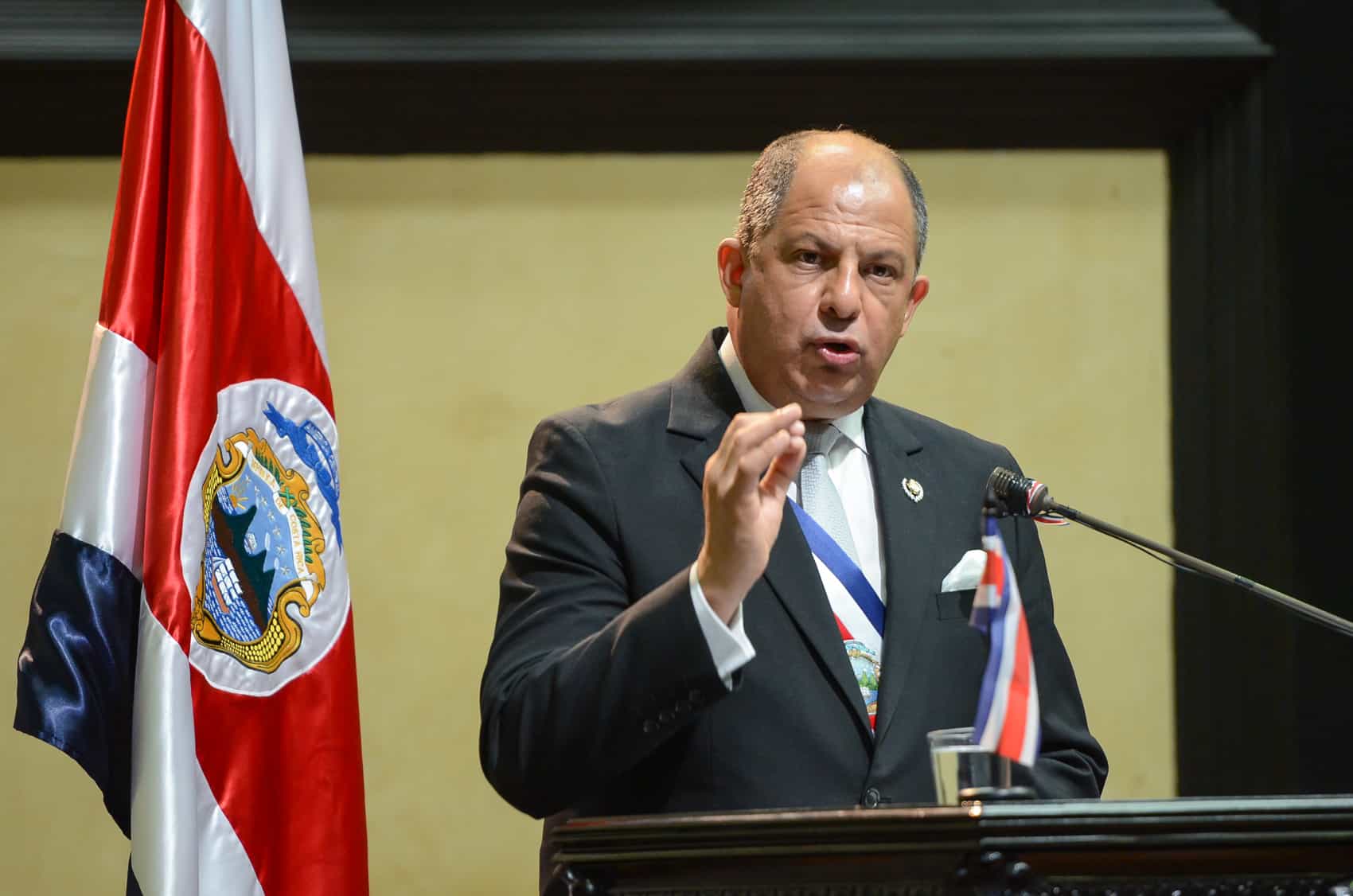Elected a year ago on a wave of euphoria and following promises of change, President Luis Guillermo Solís addressed Costa Rica Friday night in his first State of the Nation speech with fewer accomplishments to report than he would have hoped for.
Facing an historically fractured legislature, divisions from within his own ruling Citizen Action Party (PAC), and squandered political capital from his landslide election in April 2014 following relatively minor but persistent blunders, Solís had few victories to claim. After a coup in the Legislative Assembly wrested power from his party, the first-time politician will have to hope fresh faces in his Cabinet and lessons learned from his first year can be leveraged into a more productive next 12 months.
Solís said he wants to focus his efforts in the coming year on shoring up Costa Rica’s fiscal future, job creation and improving infrastructure.
When his speech turned to the country’s finances, Solís was not afraid to use hyperbole to make his point.
“Public debt is a time bomb that we must diffuse!” Solís said.
According to the president, servicing Costa Rica’s public debt has increased to $1.6 billion annually, up from $795 million annually a decade ago.
Solís outlined his government’s efforts to slow the growth of the fiscal deficit, including reducing spending by ₡700 billion — $1.3 billion — out of the ₡8.4 trillion budget. He boasted that the government has slowed the increase in spending to its lowest level in six years, at 9.3 percent annually, down from 13.4 percent in 2013.
Chronicling his administration’s efforts to curb public spending, Solís urged lawmakers to take up his proposed value-added tax instead of the current sales tax to help close the deficit, as well as measures to fight tax evasion and improve collection of existing taxes.
“The government of the republic has stabilized the fiscal situation without approving new taxes,” he said. “What has been achieved so far is fragile.”
Solís also focused on his administration’s efforts to address Costa Rica’s stubbornly high poverty rate, especially on outreach to women entrepreneurs. The president also said that an additional ₡180 billion — $342 million — would be made available for small businesses loans. A new jobs program, “Mi Primer Empleo,” will create 30,000 jobs for young people and women, he said.
The government invested ₡1.8 billion ($3.4 million) in seed funds to 1,417 women during his first year in office out of an anticipated 5,000 women total. His anti-poverty program, “Puente al Desarrollo,” launched this year with the aim of helping 54,600 families across the country living in extreme poverty.
The government will also make a significant investment in improving the country’s agriculture extension services, he said.
Following legislative victories for Route 32 and San Ramón highway expansions, Solís said he would prioritize improvements to San José’s roundabouts, repairs to bridges, including the Virilla Bridge over the General Cañas Highway, and the northern stretch of the Circunvalación highway.
The bumpy road ahead
“A difficult year awaits us,” Solís told lawmakers Friday evening on the floor of the Legislative Assembly.
“Difficult” was an understatement. After a newly formed coalition of opposition lawmakers led by Social Christian Unity lawmaker Rafael Oritz won control of the Legislative Assembly from PAC Friday morning, the Solís administration faced a better organized, more forceful opposition.
Many of the president’s legislative priorities outlined in his speech — equal rights for same-sex couples, in vitro fertilization and new taxes to reduce the deficit — have already been called non-starters by the new coalition, reported the daily La República.
Solís said he is “satisfied” with the Legislative Assembly’s progress but much of the administration’s legislation was moribund for the last 12 months. Some of the most talked about legislation, including financing for the San Ramón and Route 32 highway expansions, originated during the previous administration of President Laura Chinchilla (2010-2014).
The president recently named a new presidency minister, Sergio Alfaro Salas, as his adminsitration’s envoy to the legislative branch. The fresh start might help motivate lawmakers to find common ground on other bills Solís mentioned during his State of the Nation speech, including animal welfare, tax evasion, anti-contraband, and improving transparency and efficiency in the use of public funds.
Despite the setbacks of his first year in office and the challenges that lie ahead, the president did not waver from the transformative message that got him elected.
“The fundamental challenge that we face as a nation is to build a new democratic culture that delivers us greater economic prosperity and, in parallel, greater social equality,” Solís said. “As we all know: Saying it is easy; achieving it is far too difficult.”






